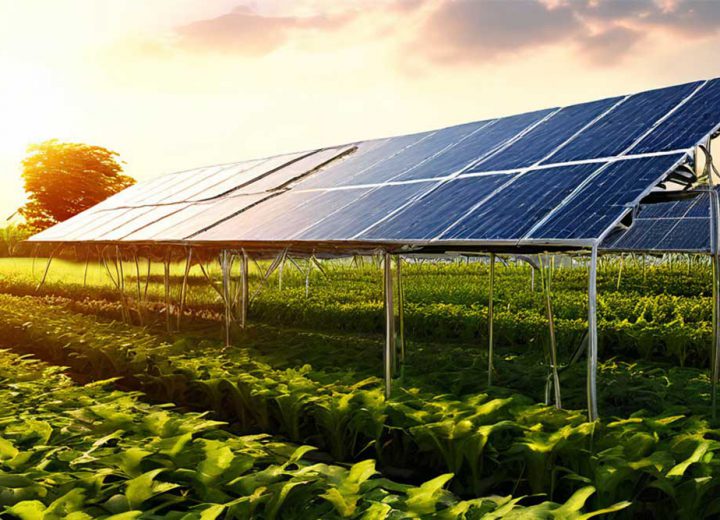Renewable energy is critical to Nigeria’s sustainable development, powering key services like smart farming and waste recycling. As the country seeks to reduce its dependence on fossil fuels, renewable energy sources such as solar and hydropower are becoming essential. These clean energy solutions not only reduce environmental impact but also support the growing need for electricity in both rural and urban areas.
In Nigeria, renewable energy is revolutionizing smart farming. Solar-powered irrigation systems and IoT devices are enabling farmers to manage crops efficiently, even in remote locations. A particularly promising innovation is agrivoltaics, where solar panels are installed above farmlands. This approach generates electricity while providing shade for crops, reducing water usage, and protecting against extreme heat. With Nigeria’s abundant sunlight, agrivoltaics offers a sustainable solution that enhances food security and supports the country’s renewable energy goals.
Waste recycling initiatives in Nigeria also benefit significantly from renewable energy. By powering recycling facilities with clean energy, Nigeria can transform waste into valuable resources without adding to environmental degradation. This supports the country’s transition to a circular economy, where resources are reused, and waste is minimized. Moreover, using renewable energy in waste management systems helps reduce greenhouse gas emissions, contributing to Nigeria’s efforts to combat climate change.
Greenhouse farming, another smart agricultural practice, is thriving with the support of renewable energy. Solar-powered greenhouses allow Nigerian farmers to grow crops year-round, regardless of external weather conditions. This method increases food security, improves crop quality, and reduces the need for chemical inputs, promoting healthier and more sustainable agriculture.
In summary, renewable energy is the backbone of Nigeria’s efforts to build a sustainable future. By integrating clean energy into smart farming and waste recycling, the country is not only addressing its environmental challenges but also driving economic growth and improving the quality of life for its citizens. With continued investment and innovation, Nigeria is poised to become a leader in sustainable development, setting an example for the rest of Africa and the world.


